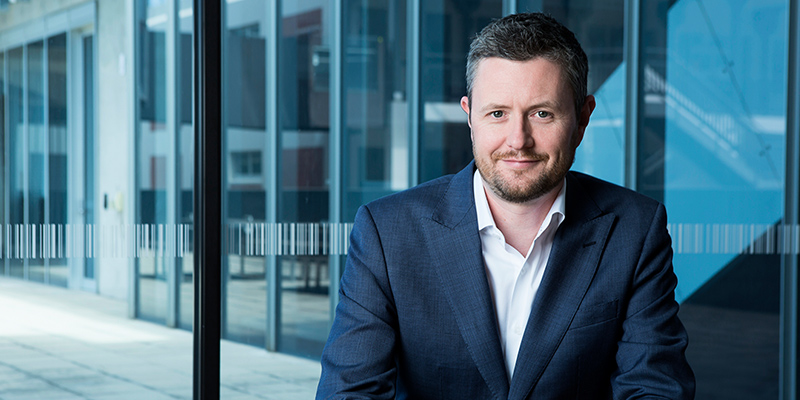From the Vice Chancellor
 INSIDE UNISA
INSIDE UNISAThe Kaurna word, banba-ban-balya, means conference and when the Kaurna people held them they lasted for two moons (two months) and knowledge, expertise and wisdom were shared between the attending nations.
It’s how culture endures for 65,000 years or more.
This year is the International Year of Indigenous Languages and at the end of November there will be another banba-ban-balya, this time at Magill where South Australian Aboriginal Elders from nations including Kaurna, Barngala, Bunganditj, Ngarrindjeri, Anangu, and Narrunga will meet for a yarning circle with the University’s senior management group. It’s part of our commitment to fostering strong relationships with Aboriginal Peoples and is an opportunity for senior voices from the South Australian Aboriginal community and the University to progress a UniSA Aboriginal protocols document.
For as long as we have been a university, UniSA has committed to being the university of choice for Aboriginal people. Our founding act mandated Aboriginal engagement and important initiatives such as the Aboriginal Taskforce, Australia’s first Aboriginal Tertiary Program, and Aboriginal Studies programs gave strength to our commitment.
In 2014 we launched our Reconciliation Action Plan (RAP) that gave us a real opportunity to deepen the respect and relationships between Aboriginal and non-Aboriginal peoples and other groups within the university.
We followed the RAP with a Stretch RAP, a commitment to creating an environment where both Aboriginal and non-Aboriginal people can learn, teach, research and engage with each other in a place that acknowledges, respects and learns from Aboriginal Peoples and their unique knowledges.
Now we are taking that commitment further with our new Aboriginal Research Strategy which has been designed to position UniSA nationally by clearly articulating a two-way knowledges approach which will be embedded across our research activities.
This is research with, not research on, and it commits us to create a university-wide research environment in which two-way knowledge sharing, reciprocity, mutual respect and understanding and lifelong learning are common practice.
Aboriginal research has been cultivated over 65,000 years and draws together the lived experiences of thousands of generations. Aboriginal Peoples have been investigating their worlds, recording and sharing unique ways of knowing, doing and being, where stories of land and peoples merge song lines with facts and provide a way of seeing the world in the idiom of song.
Aboriginal knowledge systems are foundational and fundamentally important to Aboriginal Peoples but also to the intellectual, social and cultural capital of Australia as a whole. They provide critical insights into modern research questions, such as understanding the history of climate change in Australia or adopting ancient approaches to agriculture to address modern farming challenges.
Aboriginal culture teaches us that knowledge is essential to survival and that the maintenance and transference of knowledge is a sacred trust. Aboriginal Peoples understand that with knowledge comes responsibilities, and that we must continue to uphold these responsibilities for the benefit of future generations.
Reconciliation is a prerequisite for Australia to reach a mature nationhood which acknowledges the past, understands the present, and faces the future confidently based on the coexistence of rights.
The banba-ban-balya in late November at Magill is part of the respect we have for each other, and for the relationships we are building with each other that will help bind us together and build a better society for all of us.
Other Stories
- UniSA researchers to help NASA monitor health in space
- Great career prospects for UniSA graduates, new government data shows
- Parents left in the cold when it comes to kids with autism
- New multilevel homes become heat traps in summer
- From the Vice Chancellor
- Achievements and Announcements
- World first study with drone cameras able to identify survivors
- Wastewater study pinpoints cities across the world with high drug use
- UniSA ranked top in SA for Education, Law, Business and Economics
- Opportunity for almost 200 UniSA students to study in Indo-Pacific in 2020
- Intensive course empowers women impacted by domestic violence and homelessness
- The magic that happens when a nanoengineer and immunologist collaborate
- UniSA takes reins on world first Invictus Pathways Program for Aussie veterans and first responders
- New Social Enterprise Hub to foster social innovation and entrepreneurship
- New partnership with MIT to underpin data visualisation research
- UniSA Vietnamese law student wins SA’s top honour
- The latest books from UniSA researchers
- UniSA Alumni Awards and UniSA Research Day
- Australia’s drought relief package hits the political spot but misses the bigger point
- Relive the Hawke Centre’s latest events
- Read the latest edition of unisabusiness magazine
- Read the latest edition of enterprise magazine




